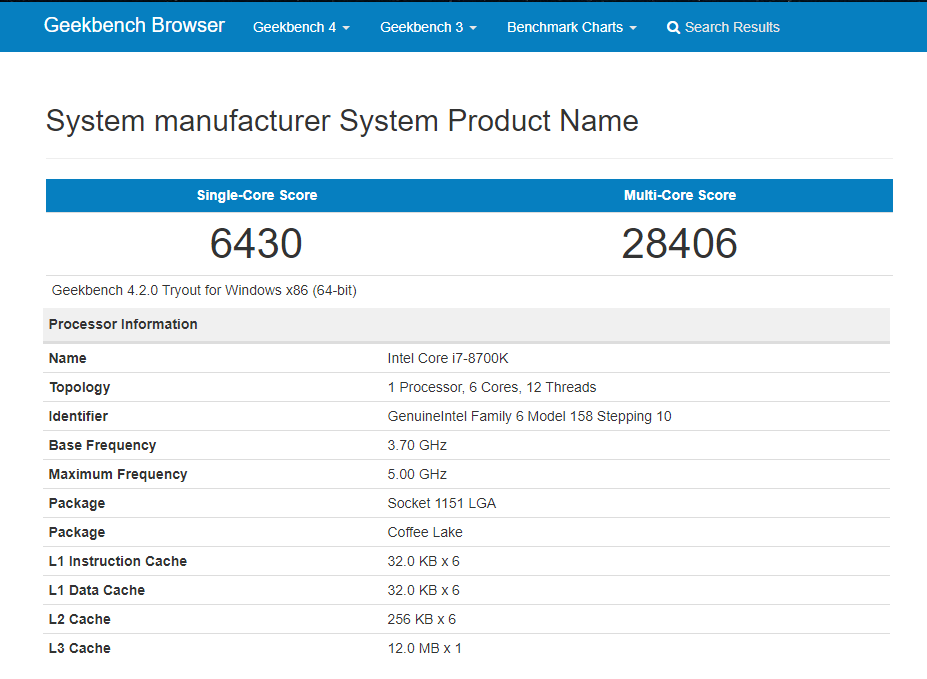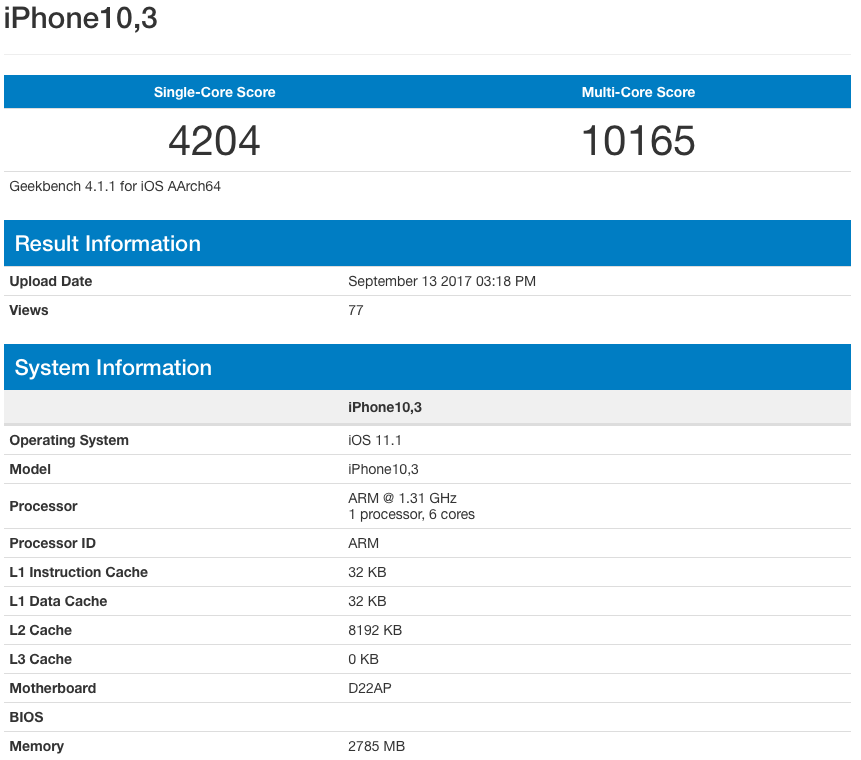As you guys know, AMD is to release the Ryzen 2000 or let's just call it Zen+ In April. In January the Ryzen 5 2600 already surfaced in the SiSoft Sandra database. The entry showed a processor called Ryzen 5 2600, which obviously is Zen+, the model listed is a six-core twelve threaded processor.
The very same processor once again has surfaced and seems to be the counterpart of the Ryzen 5 1600. The Ryzen 5 1600 shows Family 23 Model 1 Stepping 1, the new Ryzen 2600 reads out as Family 23 Model 8 Stepping 2.
The entry within the SiSoft database is:
ZD2600BBM68AF_38/34_Y (6C 12T 3.4GHz, 1.1GHz IMC, 6x 512kB L2, 2x 8MB L3).
And yes you can deduct anything and pretty much everything from that, including a 3.4 GHz base clock and a 3.8 GHz turbo. The new leak was spotted at GeekBench and seem to be interesting as it shows that exact same product code, the single core score returns a 4269 points and the multicore score now sees 20102 points. So let's call that a ~10% performance increase. Obviously, we will still need to learn if the new Ryzen 2000 series can tweak higher compared to its predecessor.
Now I know, it's not much to look at and Geekbench most definitely is not definitive and all saying, but I made the following comparison. BTW I assume the Ryzen 2600 is a non 'X' model much like a Ryzen 1600, and as such compared based on that being the fairest baseline. Note, the L 1/2/3 caches on the original Ryzen 5 1600 entry seems to be messed up, for the Ryzen 5 2600 they seem spot on. Also, the Insyde Software BIOS for Ryzen 5 2600 might seem weird, but that is a UEFI Firmware & Engineering Services Provider, indicating this test was using an engineering sample motherboard.
Source: http://www.guru3d.com/news_story/amd_ryzen_2600_benchmark_spotted.html
Please look at the images at the link. I could not copy the images here as I was rushing to post this awesome news.
Old Ryzen 1600 score: 3636
New Ryzen 2600 score: 4269 !!!!!
The boost: 17% !!! Wow wow wow
![[H]ard|Forum](/styles/hardforum/xenforo/logo_dark.png)


